BBC NEWS
UN war crimes investigators say US-led coalition air strikes on Islamic State militants in the Syrian city of Raqqa are causing "staggering loss of life".
Hundreds of civilians are reported to have been killed since March, as coalition warplanes support an offensive by a Kurdish-led alliance. In the past week. Syrian Democratic Forces (SDF) fighters have pushed into the west, east and north of Raqqa. The battle for the city has also led to 160,000 civilians fleeing their homes. The coalition has said the capture of Raqqa will deliver a "decisive blow" to the caliphate proclaimed by IS in June 2014, months after it took control or the city.
Up to 4,000 militants are believed to be holed up inside Raqqa, including foreign fighters and various senior figures. It is unclear how many civilians are trapped there with them, but UN officials estimated that there are between 50,000 and 100,000.
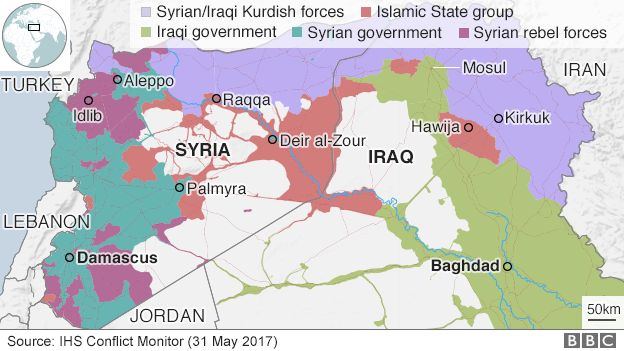
In an address to the UN Human Rights Council on Wednesday, the chairman of the independent commission of inquiry for Syria noted that IS had been losing territory at a rapid pace in the north and centre of the country over the past few months.
If successful, Paolo Pinheiro said, the SDF offensive on Raqqa "could liberate the city's civilian population from the group's oppressive clutches, including Yazidi women and girls, whom the group has kept sexually enslaved for almost three years as part of an ongoing and unaddressed genocide".
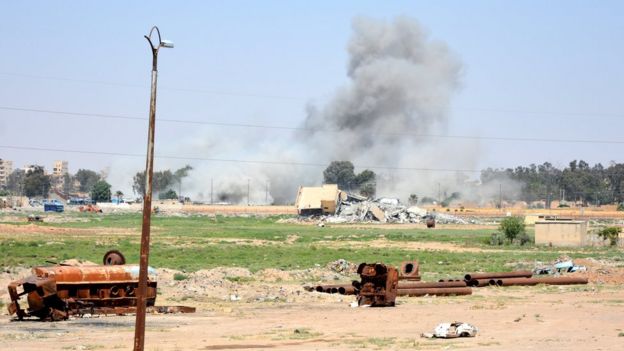 EPA
EPA
But he added that the offensive must not be "undertaken at the expense of civilians who unwillingly find themselves living in areas where [IS] is present".
"We note in particular that the intensification of air strikes, which have paved the ground for an SDF advance in Raqqa, has resulted not only in staggering loss of civilian life, but has also led to 160,000 civilians fleeing their homes and becoming internally displaced."
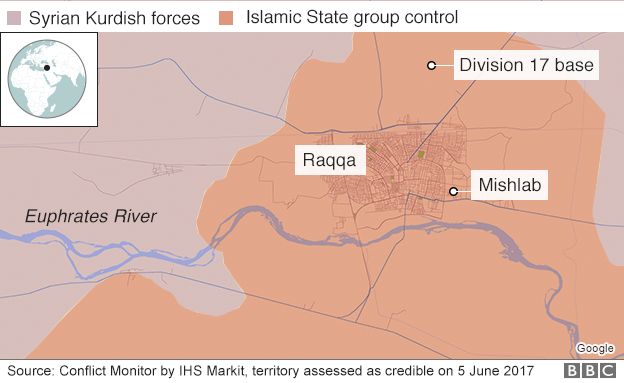
The UK-based monitoring group Airwars estimates that more than 600 civilians were killed in more than 150 coalition or SDF attacks between March and May.
Air and artillery strikes killed dozens more in the first eight days of June, it says.
The UN Office for the Co-ordination of Humanitarian Affairs warned on Thursday that the assault was intensifying an "already desperate" situation in Raqqa.
Air strikes, shelling and clashes on the ground were killing and injuring civilians, and damaging key infrastructure, it said. There were also reports of increased shortages of essential commodities such as food, medicine and fuel, it added.
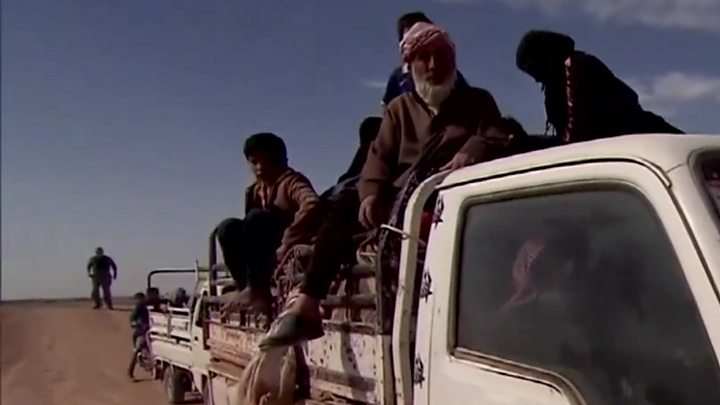
Tens of thousands have left the city as fighting intensifies.
Mr Pinheiro also expressed deep concern that the creation of "de-escalation" zones in western Syria - agreed earlier this year as part of a plan sponsored by Russia, Turkey and Iran - had not led to improved access for aid agencies.
So far this year, he said, only one UN convoy had been permitted access to an area identified as urgently in need of assistance.
The UN investigators were also alarmed at the increasing number of "evacuation agreements" in which civilians are being moved out of some besieged areas.
They said some of the evacuations might amount to war crimes because they appeared "primarily motivated by the strategic considerations of the warring parties that negotiate them" and generally did not take the wishes of civilians into account.
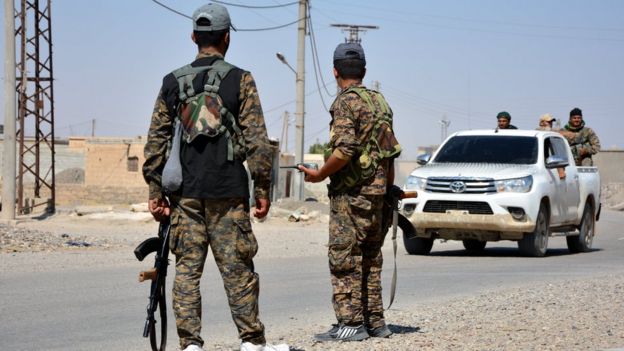 EPA
EPA
Separately, Human Rights Watch warned that the coalition's use of artillery-delivered white phosphorus in Raqqa and in the last remaining IS-held parts of the northern Iraqi city of Mosul was endangering civilians.
White phosphorus can be used for several purposes on the battlefield - as a smoke screen, for signalling and marking, and as an incendiary weapon.
However, international law prohibits its use in civilian areas because of its indiscriminate effects. On contact, it can burn people, thermally and chemically, down to the bone.
"No matter how white phosphorus is used, it poses a high risk of horrific and long-lasting harm," warned Steve Goose, arms director at Human Rights Watch.
No comments:
Post a Comment